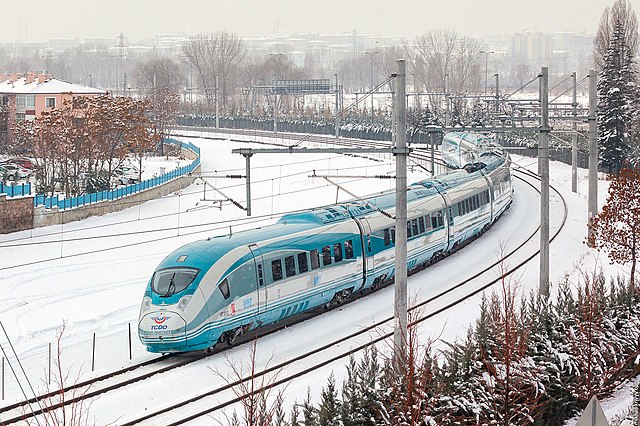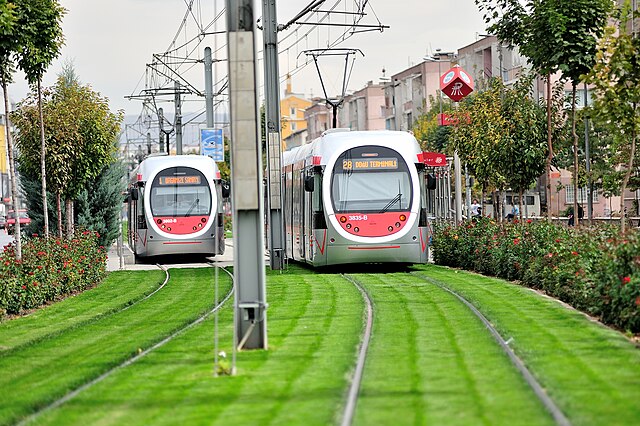In Turkey, air pollution is the most lethal of the nation's environmental issues, with almost everyone across the country exposed to more than World Health Organization guidelines. Over 30,000 people die each year from air pollution-related illnesses; over 8% of the country's deaths. Air pollution is particularly damaging to children's health. Researchers estimate that reducing air pollution to World Health Organization limits would save seven times the number of lives that were lost in traffic accidents in 2017.
Smog in Istanbul in the early 21st century
Electric buses were introduced to Samsun in the early 2020s
Yeniköy Power Plant in Muğla
Coal and wood are still burnt to heat some older buildings in some cities, although the yellow plaque shows that natural gas is available in the street.
Transport in Turkey is road-dominated and mostly fuelled by diesel. Transport consumes a quarter of energy in Turkey, and is a major source of air pollution in Turkey and greenhouse gas emissions by Turkey. The World Health Organization has called for more active transport such as cycling.
Istanbul Airport is the main international airport serving Istanbul, Turkey. It is a major hub in the world.
Haydarpaşa railway station built in 1909 by the Anatolian Railway (CFOA) as the western terminus of the Baghdad and Hedjaz railways, has become a symbol of Istanbul and Turkey and is famous throughout the Middle East.
TCDD HT80000 (Siemens Velaro TR) has a maximum operating speed of 300 km/h (186 mph)
Trams in Kayseri








